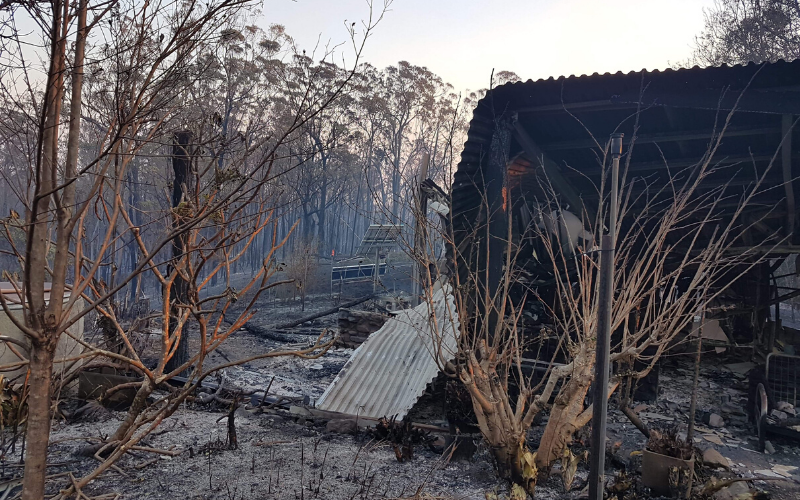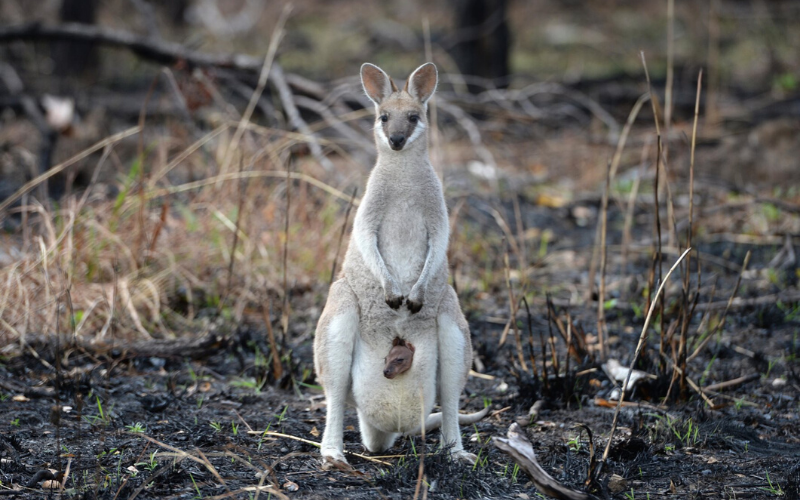The Spring bushfires in Northern New South Wales and South-East Queensland are horrifying. It simply shouldn’t be like this, but it is. And the consequences for our communities and our wildlife are very real.
Like all Australians we are grateful for all the work the emergency services volunteers and staff have carried out to date, and for the work that is still to come. As climate change increases fire risk, the workload borne by the people who have to fight these fires, increases year in year out.
We are concerned about the impacts these fires have had on our friends and families. Far too many Australians know someone who have lost their homes and much more in these fires. Despite all possible precautions being carried out, our long-time Queensland campaign manager, Gemma Plesman, lost her family home in Nymboida a week ago. And beyond the human cost, there is the cost to nature.

Australia is a fire-adapted continent and we have a fire-adapted fauna and flora but we aren’t adapted to this. Unprecedented drought combined with historic high temperatures have meant that these fires have burnt down through wet gullies, up over cloudy peaks and deep into rainforest. These natural barriers to fire have been broken. It means these fires have run for weeks, reaching from the western fringe of the bushland on the Great Dividing Range for several hundred kilometres, right down to the coast.
"Core areas of koala habitat have been lost, with many of the koalas within it," says Tim Beshara, the Wilderness Society's Federal Policy Director. "We don’t yet know about some of the other endangered species whose habitat may have been impacted – the brush-tailed rock wallaby, the eastern bristlebird. And we don’t yet know how the rainforest might grow back, if at all, after these fires."

Some of the areas affected we long campaigned to protect from logging or mining. But we didn’t imagine that the natural protections from mega-fires could be broken down by record droughts. And this means we have to fight twice as hard to ensure these areas are safe from all threats, including climate impacts. When our wildlife within nature reserves can no longer be considered 100% secure, then the need to protect them from all the other threats takes on a new urgency. The last thing the koala needs after a devastating loss of population from fire, is to lose more habitat from something like industrial logging.
We will have more to say about the impact of climate change on Australia’s natural wonders over the coming months. It will form part of our push to change the laws of nature through the Australian Government review of the Environmental Protection and Biodiversity Conservation Act - an Act that doesn’t even mention 'climate change' once.
As record November temperatures hit Perth, and South Australia braces for catastrophic fire risk, it is time for national government leadership to protect nature and mitigate climate change. Let the Government know that you want action.